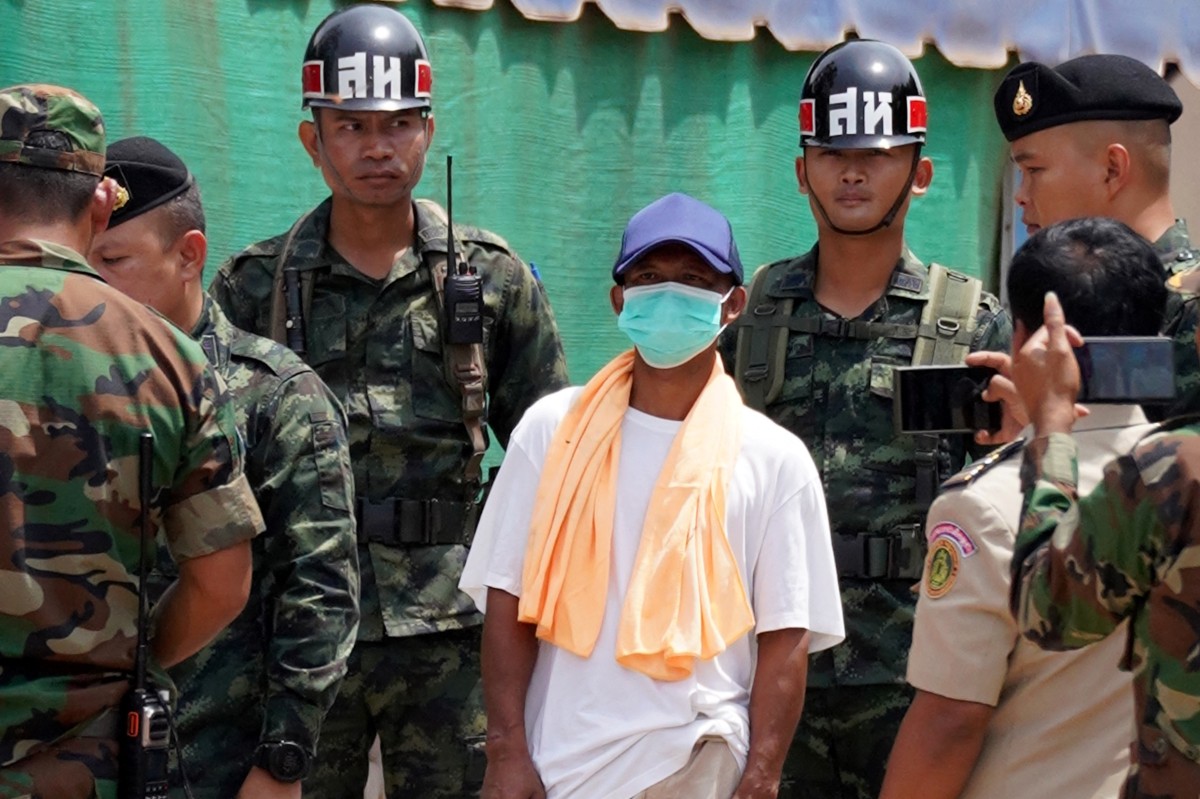Escalating Tensions on Thai-Cambodian Border: Assassination Rumours, ICC Threats, and Encroachment Claims Ignite Regional Spat

Thailand's Ministry of Foreign Affairs has firmly rejected recent social media claims alleging that Thailand is planning to assassinate Cambodian leaders Hun Sen and Hun Manet. These accusations, reportedly made by Cambodia’s Minister of Information citing foreign intelligence sources, were called entirely unfounded and defaming by Nikorndej Balankura, Director-General of the Department of Information. Nikorndej stressed that spreading such false news, especially amidst ongoing General Border Committee (GBC) discussions, is counterproductive and undermines the spirit of dialogue aimed at peaceful resolution. The Ministry condemned this disinformation as a harmful attempt to derail diplomatic efforts between the two nations.
This incident is part of a broader trend of misinformation surrounding the border conflict. The Ministry of Digital Economy and Society (DES) reported that eight out of the top ten fake news items in a recent week were false reports related to the Thai-Cambodian border. The top three, and five additional stories, specifically concerned the border situation, highlighting the pervasive nature of disinformation in the context of the bilateral tensions.
Amid these diplomatic and informational challenges, the Royal Thai Army (RTA) is leading the ASEAN Interim Observation Team (IOT) in visiting the Thai-Cambodian border to monitor alleged breaches of international law and ceasefire conditions by Cambodian troops. This mission follows earlier visits organized by the Thai government for international bodies. ASEAN envoys and representatives from countries that ratified the Ottawa Convention – which bans the use, stockpiling, production, and transfer of anti-personnel mines – visited Si Sa Ket province. There, envoys reportedly witnessed evidence of anti-personnel mines allegedly laid by Cambodian troops and interviewed affected residents. Thailand expects these findings to be reported to respective governments and raised with the international community.
Furthermore, the RTA, in coordination with the Foreign and Interior Ministries, facilitated a visit by representatives of the International Committee of the Red Cross (ICRC). The ICRC assessed the humanitarian impact of cross-border attacks on civilians in Surin, Si Sa Ket, and Ubon Ratchathani provinces, interviewing local residents in affected districts. This visit underscored Thailand’s commitment to collaborating with the ICRC to enhance humanitarian protection mechanisms. The ICRC gathered factual information on the ground from affected civilians and will compile a confidential report on the humanitarian impact for direct submission to both Thailand and Cambodia, without making its findings public.
The seriousness of the border issues has led to proposals for legal action against Cambodian leadership. Acting Prime Minister Phumtham Wechayachai stated that academics might submit a proposal for the government to consider suing Cambodian Prime Minister Hun Manet and his father, Hun Sen, as war criminals in the International Criminal Court (ICC). This follows a resolution by the National Security Council (NSC) to file both criminal and civil lawsuits against them in Thai courts for causing deaths, injuries to Thais, and property damage by ordering Cambodian troops to fire at Thai civilians.
A significant point of contention concerns the historical context of border encroachment. Government spokesman Jirayu Houngsub insisted that Cambodians had betrayed Thai hospitality and humanitarian aid by establishing a community on Thai soil at Ban Nong Chan village in Sa Kaeo. This village, initially a temporary shelter for Cambodians fleeing civil war in 1977, was allegedly exploited by Cambodia to encroach on Thai territory. Jirayu addressed claims by an American lobbyist hired by the Cambodian government, who alleged Thai troops blocked hundreds of Cambodians from returning home. Jirayu clarified that Thailand had erected razor wire within its own boundaries to protect its territory from further encroachment and attacks by Cambodian troops, who had laid landmines. He emphasized that this action did not violate the conditions agreed upon during the General Border Committee’s meeting on August 7, which stipulated neither side would construct structures outside their territories.
Recommended Articles
Southeast Asian Tensions Soar: Thailand & Cambodia Clash Over Borders, Legal Threats, and Fake News

The Thai-Cambodian border conflict is escalating with a surge in disinformation and mutual accusations, including claims...
Border Fury Erupts: Thailand and Cambodia Face Off Over Land, Leaders, and Lies

Thailand vehemently refutes Cambodian allegations of assassination plots against its leaders, labeling them as unfounded...
Thai-Cambodian Crisis Ignites: Assassination Rumors, Border Disputes & Refugee Exodus Fuel Regional Tensions

Thailand has vehemently denied allegations of plotting assassinations against Cambodian leaders, emphasizing that such d...
Border Tensions Ignite: Thailand and Cambodia Clash Over Territory, POWs, and Political Intrigue

Thailand and Cambodia are engaged in complex border disputes involving mutual accusations, including claims of assassina...
Escalating Tensions: Thai Army Deploys Amid Cambodian Border Claims, POW Standoff

Thailand asserts its right to detain Cambodian prisoners of war under international law while addressing border disputes...
You may also like...
Blockbuster Showdown: Jake Paul vs. Gervonta Davis Set for November 14!

Boxing sensations Jake Paul and Gervonta "Tank" Davis are set to clash on November 14 in an unexpected exhibition bout s...
WNBA Playoff Fever: Aces Clinch, Teams Scramble for Postseason Berths!

The 2025 WNBA playoffs kick off September 14, introducing a best-of-seven Finals series for the first time. The Minnesot...
Netflix Sensation: ‘KPop Demon Hunters’ Shatters Records, Eyes Oscar Glory

Netflix's "KPop Demon Hunters" has become the most-streamed movie in the platform's history and is now a significant Osc...
The Hunt for 007: New Writer, Actors Weigh In on Next Bond Era

The search for the next James Bond continues post-Daniel Craig, with 'Peaky Blinders' creator Steven Knight confirmed as...
Naira Marley Breaks Silence on Mohbad's Death, Denies Involvement in Viral Documentary

Nigerian musician Naira Marley has finally shared his detailed account regarding the death of his former signee Mohbad, ...
Reading & Leeds Rocked By Secret Set Rumors: Fans Uncover Hidden Gems

The Reading and Leeds Festivals are buzzing with speculation as fans anticipate secret sets from major acts like Foo Fig...
Bianca Censori's Shocking Public Persona: Nude Displays & Kanye's Power of Attorney!

Bianca Censori continues to make headlines with her controversial and revealing fashion choices, frequently appearing in...
Oasis Reunion Roars Back: Legal Battle Looms as Andy Bell Confirms Line-Up!

The highly anticipated Oasis reunion tour is set to kick off in 2025 with bassist Andy Bell confirming his involvement, ...